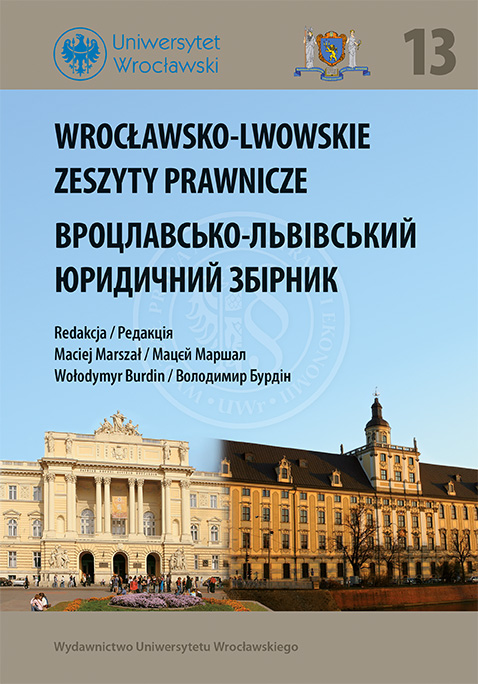

Artykuły

The subject of the paper is an analysis of the views of representatives of Polish Catholic solidarism on the institution of property, its social role, desired shape and possible and necessary limitations. The most important representatives of Polish Catholic solidarism were: Fr. Antoni Szymański, Fr. Aleksander Wóycicki, Prof. Leopold Caro, Fr. Antoni Roszkowski, Prof. Ludwik Górski, Fr. Jan Urban, Bishop Teodor Kubina, Fr. Jan Piwowarczyk, Prof. Juliusz Makarewicz, as well as the later Primate of Poland, Fr. Stefan Wyszyński. Representatives of this current considered property to be the basis of the state’s legal and political system and founded this concept on theological premises. Referring to the encyclical Rerum novarum, they recognized God as the owner of all that was created by Him. Another source of property, in their opinion, was human labour. Bishop Kubina especially strongly emphasized this factor, saying that God performs some kind of work on the objects of His property, maintaining their existence. Since man is created in the image of God, he must take care of his own property, and thus man, in some sense, shares in God’s work of creation. Leopold Caro, analyzing theories of the origin of property, argued that not only labour, but also capital creates property; however, priority in terms of protection should be given to property derived from labour. Catholic solidarists (including Fr. Antoni Szymański), referring to the concept of Léon Duguit, emphasized the social function of property and pointed out that only property fulfilling this function deserves protection. Based on Catholic social teaching, Polish Catholic solidarists saw significant threats to property rights on the side of both socialism and capitalism.
According to Catholic solidarists, private property was not an unlimited right, as it was perceived under Roman law. This institution was associated with a number of obligations on the part of the owner. Bishop Kubina recognized that the Creator allowed social inequalities, but that people would try to overcome them. Leopold Caro argued that property should be used to help the economically weaker social strata. Caro was the most outspoken of the Catholic solidarist circle on the permissible restrictions on ownership. He argued that they may be introduced due to the maintenance of social order, the threat of natural disasters, the economic needs of the state (for example, construction of infrastructure) or related to state security, as well as protection against the effects of excessive concentration or improper allocation of property. The scholar was also a supporter of the institution of expropriation for public purposes. The size and boundaries of the limitations were to be determined by the current social and state needs. The views of Polish Catholic solidarists on the land reform were not uniform.
Polish Catholic solidarists promoted the position of Leo XIII regarding the necessity to distribute property among the general public. This was emphasized in numerous works by Leopold Caro. Juliusz Makarewicz added an argument according to which the distribution of property in society is a sine qua non condition for maintaining the principle of equality of individuals in society. Private property was perceived by the representatives of the analyzed current as a necessary social institution.